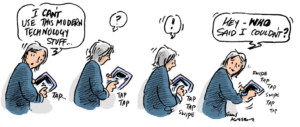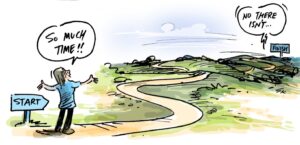Ethical AI Support – Frequently Asked Questions

Does Grief Guide replace therapy with a human professional?
No. Grief Guide is designed to complement, not replace, professional therapy. While AI can provide accessibility when traditional support is unavailable (like at 3am when you’re feeling low), it doesn’t provide the human connection, emotional depth, and nonverbal understanding that trained therapists offer. Think of Grief Guide as a supportive tool between therapy sessions or when immediate human support isn’t available. Technology can support older Australians — and all of us — through grief, but only if it’s designed thoughtfully.
- What ethical guidelines govern Grief Guide’s development?
Grief Guide adheres to QUT’s position statement on responsible AI use, which aligns with the QUT Research Code and Australian Code for responsible research conduct. As of September 2024, QUT also follow the Australian Government’s Policy for responsible AI use in Government. These frameworks ensure transparency, accountability, and ethical considerations throughout development.
- How does Grief Guide protect vulnerable users, especially older adults?
We aim to prioritise dignity, agency, and safety through several approaches: clear consent protocols that explain data use in accessible language; design features that accommodate varying digital literacy levels; and co-design sessions with older adults as equal partners in the development process as well as academics, palliative care experts and ageing advocates. These priorities will be part of the research approach.
- What are the benefits of using AI for grief support?
AI grief support offers several unique benefits: 24/7 accessibility without financial barriers; a judgment-free space to process emotions; structured support for decision-making and cognitive reframing; accessible psychoeducation; and assistance articulating complex feelings. For many users, especially those facing barriers to traditional support, these benefits provide valuable assistance during difficult times.
